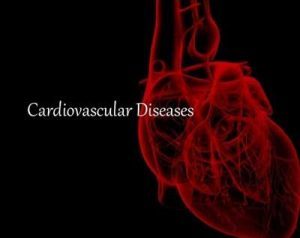- Home
- Editorial
- News
- Practice Guidelines
- Anesthesiology Guidelines
- Cancer Guidelines
- Cardiac Sciences Guidelines
- Critical Care Guidelines
- Dentistry Guidelines
- Dermatology Guidelines
- Diabetes and Endo Guidelines
- Diagnostics Guidelines
- ENT Guidelines
- Featured Practice Guidelines
- Gastroenterology Guidelines
- Geriatrics Guidelines
- Medicine Guidelines
- Nephrology Guidelines
- Neurosciences Guidelines
- Obs and Gynae Guidelines
- Ophthalmology Guidelines
- Orthopaedics Guidelines
- Paediatrics Guidelines
- Psychiatry Guidelines
- Pulmonology Guidelines
- Radiology Guidelines
- Surgery Guidelines
- Urology Guidelines
Indians more prone to die from cardiovascular diseases: UAE experts

Indians are more likely to face premature death due to heart attacks and strokes owing to genetic factors as compared with people of other nationalities, a local newspaper reported citing specialist doctors.
Indians are more likely to be affected by cardiovascular diseases at an earlier age as compared to Westerners, Gulf News quoted Dr Dinesh Babu, a consultant of cardiovascular disease in Abu Dhabi, as saying on Sunday.
In the West, the onset of heart diseases usually occurs in the 60-70 age group but in the Indian subcontinent, heart disease sets in people in their 40s and 50s, said Babu, as he cited studies conducted on Indians living in the US, Canada, Europe and Singapore.
The World Health Organisation's (WHO) global disease statistics show cardiovascular diseases, including brain and heart attacks, as the two major causes of premature loss of life. The underlying reason for both health crises is due to the narrowing of these blood vessels owing to cholesterol deposits.
Indians are vulnerable to higher obesity ratios in the abdominal region, Dr Babu said. Even diabetes and high blood pressure are more common in the Indian population as compared to Westerners, he said.
Dr Paul S. Thoppil, a cardiologist in Abu Dhabi, said people from the subcontinent have smaller arteries which compounds the problem of cholesterol deposit. He said there is an increase in patients (in age bracket of 32-45) with cardiovascular diseases.
Some of the significant factors that have contributed to Indians becoming more prone to heart attacks and strokes are industrialisation and globalisation leading to unhealthy eating patterns. Babu also blamed lack of exercise and smoking, that have led to an epidemic of conditions such as diabetes, blood pressure and high cholesterol.
Babu said that, given the situation, Indians need to start their regular medical check-ups after age 30, as compared to Westerners who are advised to do them after the age of 40.

Disclaimer: This site is primarily intended for healthcare professionals. Any content/information on this website does not replace the advice of medical and/or health professionals and should not be construed as medical/diagnostic advice/endorsement or prescription. Use of this site is subject to our terms of use, privacy policy, advertisement policy. © 2020 Minerva Medical Treatment Pvt Ltd